The last thing you want when showing funny videos or holiday photos on your phone or tablet to friends and family is for them to see your sensitive and private photos.
Although there are third-party apps dedicated to hiding your personal photos and videos, such as Vaulty(new window), LockMyPix(new window), and Gallery Vault(new window), these cost money and aren’t necessary. Almost all Android devices, iPhones, and iPads devices have pre-installed system apps that offer this functionality.
Another option is to remove your private photos from your phone altogether and upload them to secure online storage that only you can access (such as Proton Drive).
- How to hide your photos on iPhone and iPad
- How to hide your photos on most Android devices
- How to hide your photos on Samsung devices
- How to hide your photos by uploading them to Proton Drive
How to hide your photos on iPhone and iPad
The Photos app that Apple bundles with all iPhones and iPads includes a hidden album feature that allows you to hide pictures and videos.
1. Open the Photos app. On the Library tab, tap Select.
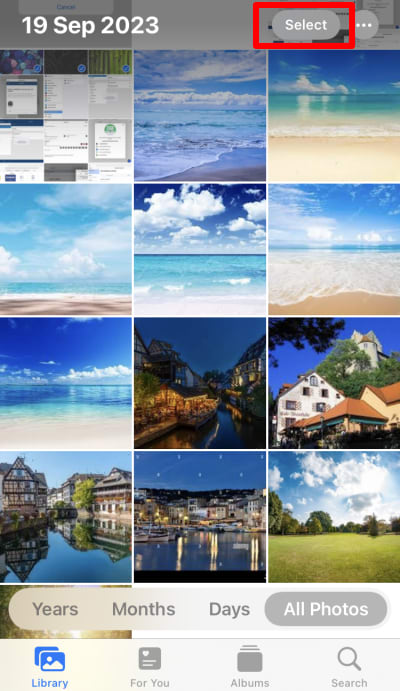
2. Select the photos or videos you wish to hide, then tap the overflow menu button (⋯) at the bottom right of the screen → Hide.

At the confirmation screen, tap Hide x Photos/Videos/Items.

The selected photos and/or videos will disappear from your Library tab and won’t appear in the For You tab, any of your Albums, or any other app installed on your device.
To see your hidden photos and videos, go to the Albums tab → Utilities → Hidden. You’ll need to verify your identity using biometrics or your device’s password.

To unhide photos and videos and return them to your regular Library, select them → overflow menu (⋯) → Unhide.

How to hide your photos on most Android devices
Most Android phones and tablets come with the Google Photos app pre-installed. If yours doesn’t, you can install it from the Google Play Store(new window).
Note: The Google Photos app has a security policy that prevents us from taking screenshots of sensitive content. We have therefore used photos of the phone’s screen where needed. Despite their reduced quality, we hope you find these images useful.
1. Open the Google Photos app and long-press on a photo or video to select it. Once one photo or video is selected, tap on other photos and videos to select them as well. When you’re done, tap ⋮ → Move to Locked Folder.
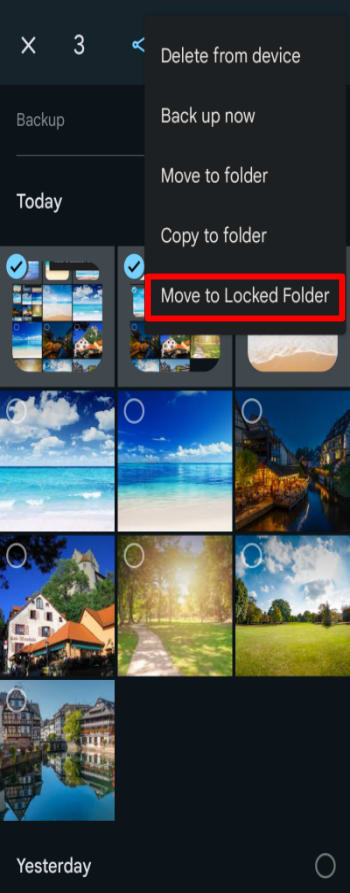
2. If this is the first time you’re moving images to a Locked Folder, you’ll need to set the Locked Folder up. Tap Set up Locked Folder. You’ll need to confirm your identity with biometrics or your device’s password.
(If you’ve already created a Locked Folder, skip to step 4.)
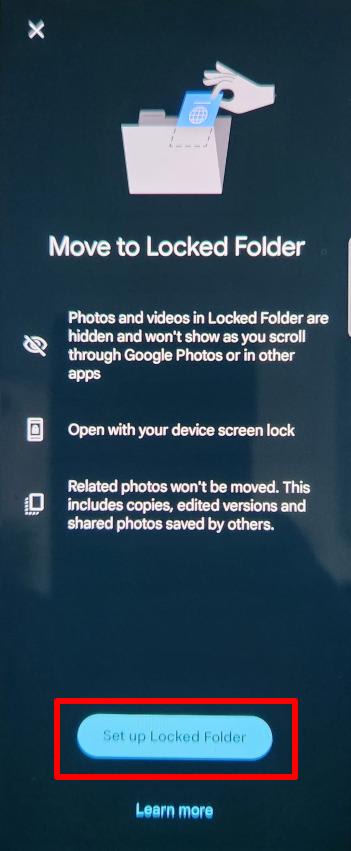
3. If you wish to back up your hidden photos and videos to Google Drive, tap Manage backup and follow the instructions provided. For the purposes of this guide, we’ll keep our photos and videos stored locally and tap Continue.

Your Locked Folder is now created.
4. Click Move to confirm that you wish to move the photos and/or videos you selected in step 1 to your Locked Folder.
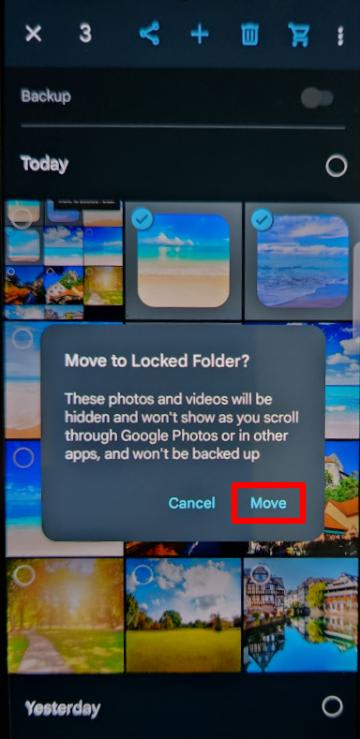
Photos and videos stored in your Locked Folder won’t appear in your Library, when you perform a search, or in any other app installed on your device.
To view them, open the Google Photos app, go to the Library tab, and go to Utilities → Locked Folder. You’ll need to confirm your identity with biometrics or your device’s password.
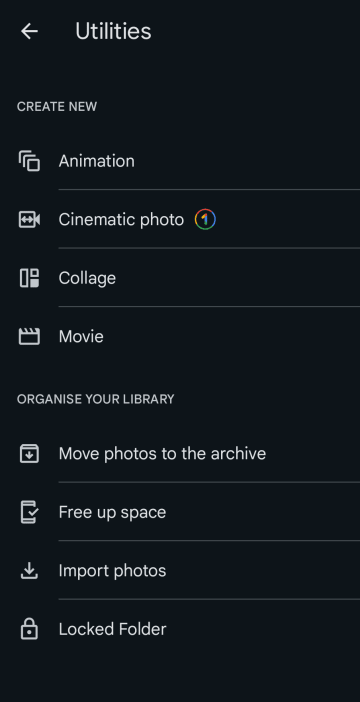
To move photos and videos out of the Locked Folder and return them to your Library, open the Locked Folder, select the photos and videos you wish to move, and tap Move (then tap Move again to confirm).
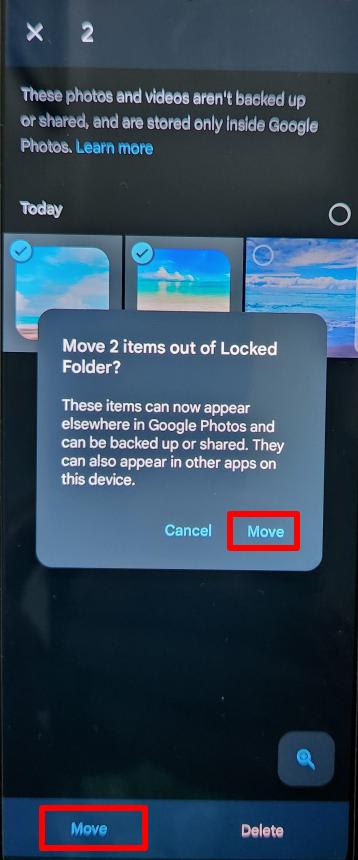
How to hide your photos on Samsung devices
You can install the Google Photos app on any Samsung device, but Samsung devices come with Secure Folder(new window). This is an encrypted folder that uses the Samsung Knox(new window) security platform to keep your data private. You can move photos and videos to Secure Folder using the Samsung Gallery app that comes pre-installed on almost all Samsung devices.
This guide was created using Samsung UI 5.1.1, but the instructions should be similar for other Samsung UI versions.
1. To use Secure Folder, you must first enable it. To do this, open the Settings app and go to Security and Privacy → Security → Secure Folder.
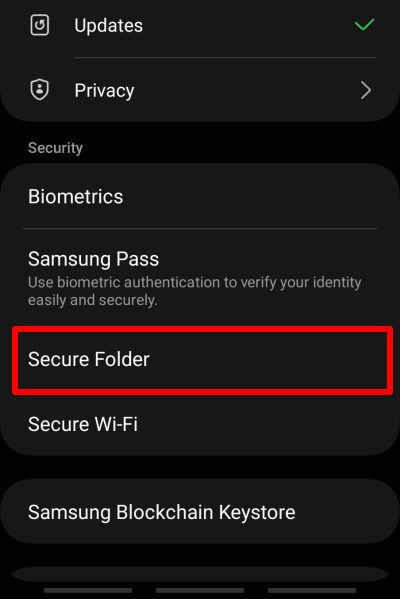
Tap Continue and follow the instructions(new window) to configure Secure Folder. In this guide, we’ll assume you’ve already added Secure Folder to your home screen.
2. Once you’ve set up Secure Folder, open the Samsung Gallery app and long-press on a photo or video to select it.
Once one photo or video is selected, just tap on other photos and videos to select them as well. When you’re done, tap More → Move to Secure Folder. You’ll need to verify your identity using your fingerprint or the password or PIN you configured when setting up Secure Folder.

Photos and videos stored in Secure Folder won’t appear when you perform a search or in your Gallery app’s Pictures, Albums, or Stories tabs. They also won’t appear in any other app installed on your device.
To view them, open Secure Folder from your Apps screen and select Gallery.

To move photos and videos out of Secure Folder, open the Secure Folder, select the photos and videos you wish to move, and tap Move out of Secure Folder.

How to hide your photos by uploading them to Proton Drive
Arguably, the best way to hide your photos is to remove them entirely from your iPhone, iPad, or Android device. Proton Drive allows you to upload your photos to an end-to-end encrypted cloud storage container that only you can access.
You’ll still be able to access them on your mobile device using the Proton Drive app.
1. Set up Proton Drive on your device
2. Upload your photos or videos to Proton Drive
On Android, tap + → Upload a file and select one or more photos and/or videos from your device to upload.

You can also use our Take new photo (or video) feature, which will upload that photo or video directly to Proton Drive without saving it on your device.
On your iPhone or iPad, tap + → Upload a photo and select one or more photos and/or videos from your device to upload.

3. Delete the photos or videos from your device. This can be done in Google Photos, Samsung Gallery, Apple Photos, or using any file manager.
In most cases, deleting files will move them to the app’s Trash or Recycle bin. To delete them from your device entirely, be sure to empty this folder.
To view your uploaded photos and videos on your phone or tablet, simply open the Proton Drive app. You can prevent anyone else with access to your device from opening Proton Drive by locking the app so that only you can open it.
To do this on Android, open the Proton Drive app and go to ☰ → Settings → Security → App lock and select Biometrics or device lock.

On iOS and iPadOS, open the Proton Drive app and go to ☰ → Settings →App settings → PIN & TouchID/FaceID and select Use TouchID/FaceID and/or Use PIN code.
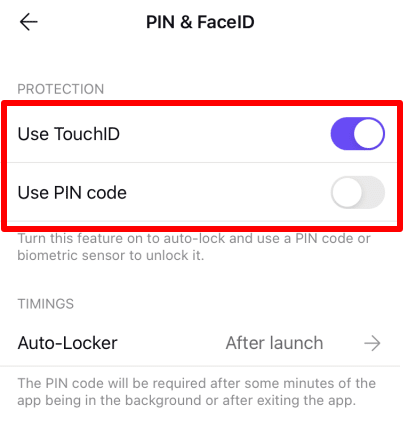
If you select Use Pin code, you’ll be asked to enter a new PIN code for the app. You can also set the app to auto-lock after a specified period of time from this screen.
Final thoughts
As we can see, both Android and iOS/iPadOS understand that many people have private photos and videos that we’d prefer to keep hidden and include tools to help you do this.
It’s worth bearing in mind that if you automatically back up your photos to a cloud service such as Google Drive, Dropbox, or iCloud, your sensitive files will be uploaded to these platforms before you hide them. And in most cases, you shouldn’t consider these cloud platforms private.
Learn more about whether cloud storage is safe
Uploading your photos and videos to Proton Drive, however, ensures they are protected by zero-knowledge end-to-end encryption, so only you can access them. And with our Take new photo feature, they don’t need to ever be stored on your device.





